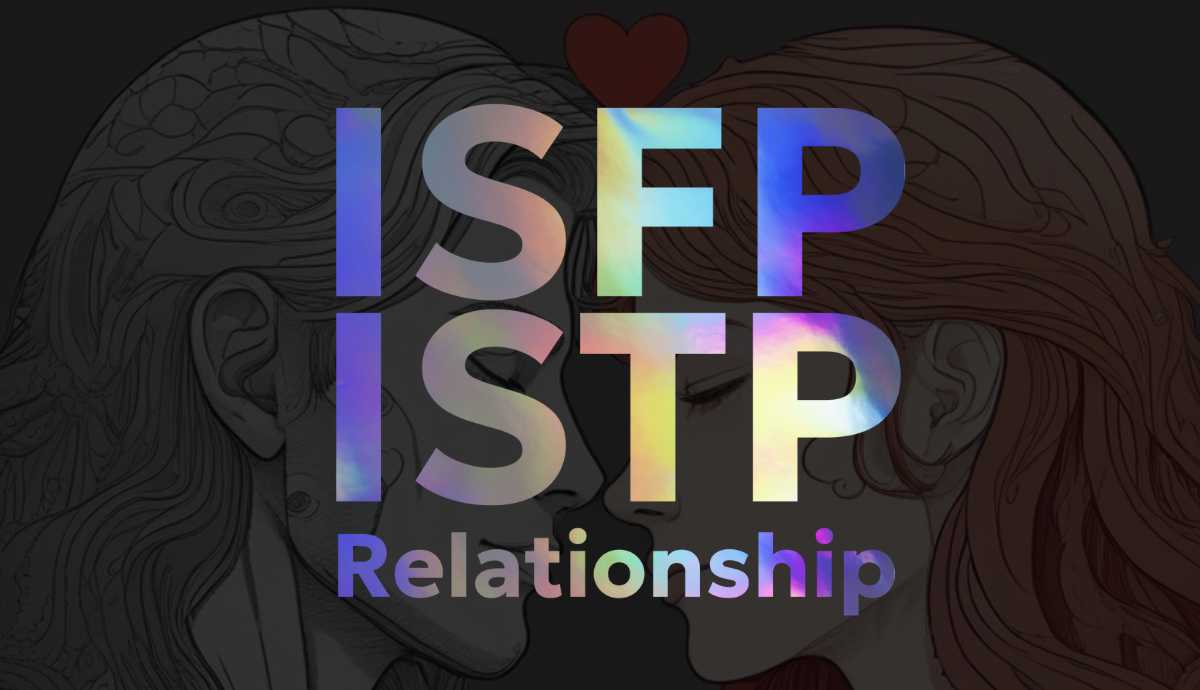Religion has existed for ages and continues to be a dominant force around the world for both good and evil. Religion can serve many purposes and for many people it can mean different things. It can be a tool for control or a guideline for how to live righteously. Here’s a look at how each Myers-Briggs personality is likely to utilize religion.
INFJ
For INFJs, religion can provide a sense of purpose and belonging – something that INFJs desire deeply. Religion operates on faith rather than facts, but INFJs have the capacity to take stock in things for which they cannot prove empirically. INFJs are drawn to metaphysics and symbolism as part of their search for meaning in their lives. Furthermore, INFJs appreciate the sense of fellowship and unity that religion fosters and also the moral guidelines it provides which can give them some direction when they lose their way in life. INFJs would like to believe that the universe is not just a cold, heartless void and that somewhere behind it all, there is a loving creator who actually cares about them.
INFP
For INFPs, religion can provide a source of comfort and solace in face of some of life’s harsh realities such as the loss of a loved one. INFPs may like to think that they will be reunited with their loved ones in the after life and they hold fast to this hope. Life can be tough for the tender-hearted INFP and religion can provide a coping mechanism that keeps them from falling into despair and depression. INFPs are able to practice their faith without believing everything it purports. They may doubt some of the literal ideas contained within a given dogma, and may cherry-pick ideas that they like and reject others they don’t. Ultimately, the way they practice their faith will be customized according to their personal core values.
INTJ
For INTJs, religion can serve as moral support and provide moral structure they find to be edifying. INTJs desire to improve themselves wherever they feel deficient and one of those areas may be in their sense of moral character. Furthermore, INTJs are likely to often ponder and question their place in the universe and religion despite it’s flaws and unsubstantiated claims, are the best available resources through which they can explore and search for answers. INTJs are inclined to believe there is meaning to life and that there is something more to it all than what we can possibly know in our current existence. INTJs are likely to be highly respected members in their fellowship and may be very active and devout believers.
INTP
The INTP is a skeptic and so even if they practice a form of faith, it will likely be done as sort of a “safe bet” as advised by Pascal’s Wager. INTP have a sincere interest in the truth and for this reason they will likely maintain an open mind and avail themselves to an understanding of religion as a whole. They may study the doctrines of multiple faiths and their origins analysing them for consistency and factual and historical relevance. INTPs may not take literally much of what religions purport but may instead focus on the meaning and proverbial wisdom they may contain. There are many religious principles for which INTP may find value and salience while others they may deem as barbaric and immoral. INTPs are willing to discard what they disagree with in a religion and keep what they do and consequently may create a personalized version of theology that is consistent and logical.
ENFJ
ENFJs are likely to be the cult leader or a high ranking member of the prelature. ENFJs have a bold vision and strong beliefs with which they desire to inspire others and will likely be at the fore within their congregation. ENFJs enjoy the sense of connectedness that religion fosters and being the idealists they are, will latch on to and promote principles of unity, love and compassion. ENFJs have a strong sense of purpose and likely believe their lives are meant to fulfill an important cause or mission. Religion caters to their desire for belonging, identity, spiritual development and the quest for meaning in their lives. They want to be remembered for their sacrifices, and noble devotion to humanity’s highest virtues.
ENFP
For ENFPs, religion can be appealing for the hope it offers and it’s idyllic promises in the after life. ENFPs have a strong sense of idealism based on love, fairness and prosperity for all. Most religions can cater to their hopes that one day they may see those ideals realized if not in this world then maybe in the next. They are not inclined to buy necessarily into all the edicts that they espouse. But ENFPs may on the whole want to believe in the good parts or at least the parts that are aligned with their personal values and beliefs. ENFPs believe in the best of humanity and beneath their ebullient and personable demeanor
ENTJ
For ENTJs, religion is something that can help enrich their lives but they likely won’t take it too seriously. This is not to say that they are in anyway insincere but their intuitions can cast some doubt on their faith. They enjoy the community and the social status they can acquire from serving a highly visible role within their community. They are likely to be a prominent figure serving a functional role in their congregations as an organizer and teacher. ENTJs may sometimes deal with depression and religion can offer hope and connect them with an alternative perspective that is uplifting.
ENTP
ENTPs may practice religion even while being critical of it. Ultimately, an ENTP who holds dogmatic beliefs is likely to do so in an ironic hipster way. Despite the unsubstantiable nature of religious faith, ENTPs may nonetheless appreciate some of the moral or ethical statutes they find useful and valuable while rejecting the bits they disagree with. This a la carte form of religious practice may paint them as insincere charlatans who are only using religion for Machiavellian purposes. To them, religion is useful for perhaps it’s wisdom and allegorical stories from which ENTPs may derive a multitude of interpretations and meanings. They likely find the subject of theology interesting and seek to understand it in depth so that they may debate objectively for both it’s pros and cons.
ISFJ
For ISFJs, religion offers a sense of security and structure to their lives that provides consolation over their concern for what happens to them after this life is over. ISFJs value the traditions, rituals and sense of community and fellowship that comes along with religion. As introverts, it also provides a means by which they can connect with other people as well as to something that is much bigger and transcendent than themselves. ISFJs derive gratification from performing acts of service to others and they enjoy taking an active role within their congregation as humble stewards of goodwill.
ISTJ
ISTJs are attracted to religion in part because they tend to give credence to establishments and institutions that have stood the test of time. ISTJs are more likely to be religious if they were raised to be, but are probably less likely to become indoctrinated as adults. ISTJs are very logical and reliant on evidence but are willing to suspend their skepticism for the sake of faith. Despite the supernatural claims purported by most religions, ISTJs can come to accept that some things may simply be beyond the realm of what they can affirm to be true through the senses. They are willing to uphold and honor customs and tradition valued by their communities and will often be seen as a cornerstone and trusted member. ISTJ likes being able to acquire respect and distinction through their dutiful observance of rituals and moral code.
ESFJ
For ESFJs, religion is just another part of life and a tradition from which they will unlikely deviate. ESFJs enjoy the community and fellowship that religion brings and being a part of something that is culturally prevalent or the social norm. They like being amongst people in any capacity and they are bound to take an active role in group functions, doing volunteer work and acts of service. They are enthusiastic and committed parishioners who bring a lot of positive energy to the gathering and they derive mucho satisfaction from the gratitude and praise they are likely to receive. ESFJs rely more on moral support from their peers than that derived from a holy book but as they get older, religion may become increasingly important to them.
ESTJ
For ESTJs, religion is likely to be an important tool for maintaining their idea of a just and honorable society. ESTJs believe in hierarchies and the natural flow of authority. They appreciate the idea of a higher power to which we must all be subordinate to as a means of keeping society’s behavior in check. ESTJs can be exceedingly diligent in their observance of their faith and follow it to a “t”. They are likely to position themselves as an upstanding example and highly respected figure within their congregations. Because tradition with long-standing histories like most religions are, hold such such credence to them, ESTJs are likely to be very committed to their faith without exercising much in the way of critical scrutiny of it’s flaws.
ISFP
For ISFPs, religion is something personal. Archaic religious institutions may seem too rigid and stodgy for them and so they may not commit themselves exclusively to any one sect. ISFPs may prefer to follow their own path towards enlightenment picking up bits of wisdom and insight from wherever they find it and psychedelic substances may be a part of the experience. ISFPs look at the miracle of the universe and probably can’t help but believe that some supreme creator must behind it. They appreciate the beauty and poetry of the world and they may look at nature in all it’s glory as a proxy for “God”. ISFPs are likely to be compassionate and sincere believers in a higher power who worship in the church of love.
ISTP
ISTPs may use religion as a moral guide for their own behavior and source of social validation. ISTP are less likely to be hardcore strict adherents but instead may turn to religion when their lives have gone awry and they are in need of some spiritual direction for their lives. Religion for them may provide an incentive to do good and serve as a useful source of moral wisdom that can put them on a better path if they’ve fallen into some bad habits and self-sabotaging behavior. It can also inspire them when they feel hopeless or experience tragedy such as the loss of a loved one. ISTPs are likely to use religion as a crutch to help pull them through the hard times.
ESTP
ESTPs are not likely to be devout followers of any faith unless it is one that preaches hedonism, adventure and excitement! ESTPs are more likely to use their “faith” as a tool for social validation or virtue signaling. They may use it to earn popularity points or ingratiate themselves with a group but later discard it when it no longer serves their purposes. Most religions are restrictive and prohibitive of many sensual activities – something that ESTPs will likely not be a fan of. ESTPs are less likely to spend much time reflecting on existential questions regarding the meaning of life. They live for the moment and generally seek to live life to the fullest until the show’s over. They may on occasion fall back on religion as casual observers of the faith when in need of guidance and moral support.
ESFP
ESFPs live life on their own terms and they can get into a lot of different things as part of their drive to experience and soak up as many experiences they can. ESFPs may get drawn to religion out of a desire to experience something profound and transcendent within themselves. Because ESFPs follow what “feels” right to them, they may be susceptible to being manipulated and seduced by cults and religious groups with irrational beliefs but positive energy and good vibrations. ESFPs love the sensory delights of the physical world, but they also want to connect with something meaningful that feeds their soul. ESFPs are likely to be open to using psychedelics and hallucinogens as part of their spiritual journey towards enlightenment.
[ads_btn label_btn=”Subscribe to Blog” url=”https://astroligion.com/subscribe-and-stay-posted/” target=”true” view_btn=”adsbtn-slice” icon=””]related posts:
- What Each Myers-Briggs Type Is Smug About
- What Each Myers-Briggs Type Does When No One’s Looking
- What Each Myers-Briggs Type Was Made To Do
- What Each MBTI Personality Hates
- Why Do INTPs Procrastinate?
- 6 Reasons Why INTJ and INFJ Fall In Love
- Which Myers Briggs Type Is Most Likely To Be A Serial Killer?
- Which MBTI Type Is Most Likely To Cheat?
https://mymessismyministry.wordpress.com/2017/12/19/how-the-church-can-be-better-towards-eating-disorders/
https://introvertdear.com/news/infj-therapist-right/
https://diaryofaspacekid.wordpress.com/2017/12/20/being-an-infp/
https://counternarration.wordpress.com/2017/12/07/the-mbti-a-tool-for-growth-and-empathy/
https://lovealchemical.com/2017/09/23/boxed-in/
Want to know your astrology placements? You can generate your astrology chart here with our free birth chart generator tool.
- American Presidents Ranked By Zodiac Sign - January 20, 2025
- ESTP and ESFP in love: 6 Dynamics of Their Relationship - September 4, 2024
- ISFP and ISTP in love: 5 Dynamics of their Relationship. - August 28, 2024





